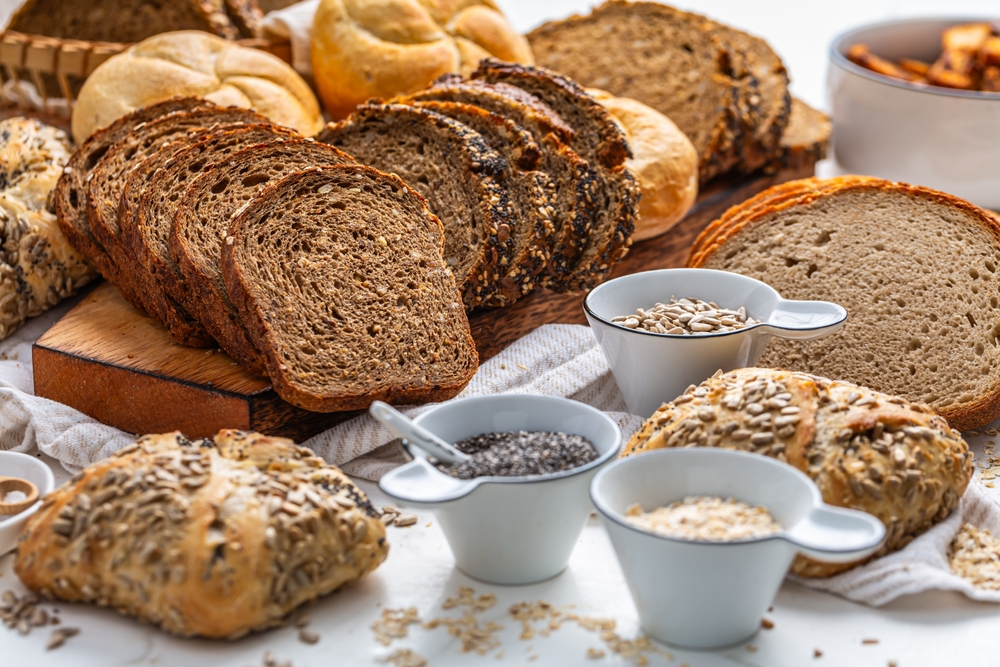Discover the transformative benefits of healthy eating for enhancing your quality of life. Explore practical tips and tricks to effortlessly integrate balanced nutrition into your daily routine. By prioritizing fresh, whole foods and diverse nutrient sources, you can optimize your energy levels, support overall well-being, and foster sustainable dietary habits that promote vitality and longevity. Embrace these strategies to enjoy a healthier, more fulfilling lifestyle starting today.
Basics of Healthy Eating
A balanced diet includes a variety of foods that provide essential nutrients like vitamins, minerals, proteins, carbohydrates, and fats in appropriate proportions. This diversity supports optimal bodily functions, immune system strength, and overall well-being. By ensuring adequate intake of nutrients, a balanced diet helps prevent chronic diseases, promotes healthy weight management, and sustains energy levels throughout the day, contributing to a higher quality of life.

Variety on Your Plate
Food diversity is crucial for obtaining a wide range of essential nutrients that support overall health and well-being. Incorporating a colorful array of fruits, vegetables, whole grains, lean proteins, and healthy fats ensures a balanced intake of vitamins, minerals, antioxidants, and fiber. Aim to include foods of different colors in your meals to maximize nutrient variety and benefit from their unique health-promoting properties. This approach enhances immune function, supports digestion, and reduces the risk of chronic diseases, promoting optimal health.
The Right Mix
Effectively combining carbohydrates, proteins, and fats is key to maintaining a balanced diet that supports overall health and well-being. Include complex carbohydrates like whole grains, fruits, and vegetables to provide sustained energy and fiber. Pair lean proteins such as chicken, fish, tofu, or beans with each meal to support muscle repair and satiety. Incorporate healthy fats from sources like avocados, nuts, seeds, and olive oil to promote heart health and absorb fat-soluble vitamins. Balancing these macronutrients ensures optimal nutrition and supports long-term health goals.
Fresh vs. Processed Foods
Fresh, unprocessed foods are preferred because they retain more nutrients and have fewer additives compared to processed alternatives. Incorporating them into your diet can be achieved by focusing on whole foods such as fruits, vegetables, lean meats, and whole grains. Shop the perimeter of grocery stores where fresh produce and meats are typically located. Plan meals ahead to prioritize fresh ingredients and minimize reliance on packaged foods. By cooking at home and experimenting with recipes, you can enjoy the nutritional benefits and flavors of unprocessed foods while supporting overall health and well-being.

Portion Control
To assess proper portion sizes and avoid overeating, use these tips: Serve meals on smaller plates to control portions visually. Use your hand as a guide: protein (palm), carbohydrates (fist), and fats (thumb). Read nutrition labels to understand serving sizes. Eat slowly and mindfully to recognize when you’re full. Practice portion control by pre-portioning snacks and avoiding eating straight from packages. These strategies help maintain a balanced diet and support healthy eating habits.
Healthy Snack Ideas
Delicious and nutritious snack options can bolster your dietary goals. Opt for fresh fruits like apples or berries, which provide vitamins and fiber. Greek yogurt with nuts offers protein and healthy fats. Vegetables with hummus provide fiber and antioxidants. These snacks keep you satisfied between meals while promoting overall health and well-being.
The Role of Whole Grains
Whole grains offer numerous health benefits, including fiber to aid digestion, vitamins, minerals, and antioxidants that support overall health. Incorporate whole grains into meals by substituting refined grains with options like brown rice, quinoa, whole wheat pasta, or oatmeal. Use whole grain flour in baking and opt for whole grain breads and cereals. These choices provide sustained energy and contribute to a balanced diet.

Importance of Hydration
Adequate water intake is essential for maintaining overall health and well-being in several ways. Water supports bodily functions like digestion, nutrient absorption, and circulation. It helps regulate body temperature and lubricates joints, promoting physical performance and reducing the risk of cramps and injuries. Proper hydration also supports kidney function by flushing out toxins. By staying hydrated, individuals can improve cognitive function, maintain energy levels, and enhance skin health. Drinking enough water daily is crucial for optimal health and vitality.
Mindful Eating Practices
Cultivate mindful eating habits by slowing down and savoring each bite. Eliminate distractions like screens during meals to focus on flavors and textures. Chew food thoroughly to aid digestion and listen to your body’s hunger cues to avoid overeating. These practices enhance digestion, promote enjoyment of food, and support overall well-being.
Meal Planning and Prep
Efficient meal planning and preparation are key to maintaining healthy eating habits. Set aside time weekly to plan balanced meals and streamline shopping. Batch cooking and freezing portions save time. Use versatile ingredients to reduce waste and prep ingredients in advance for quicker meal assembly. These strategies promote nutritious eating with minimal stress and effort.

Seeking Nutritional Guidance
Consider consulting a nutritionist or dietitian for personalized advice and support when experiencing dietary challenges, such as managing chronic conditions like diabetes or heart disease. They provide guidance on weight management, food allergies, and optimizing athletic performance. Additionally, seek their expertise for transitioning to a vegetarian or vegan diet, or when needing specialized nutrition plans tailored to individual health goals.
In Conclusion
By embracing these simple yet effective strategies for balanced nutrition, you can empower yourself to lead a healthier and more vibrant life. Making mindful choices about what you eat not only enhances your physical health but also nurtures your mental and emotional well-being. Start implementing these tips today to enjoy sustained energy, improved mood, and overall vitality. With a commitment to healthy eating, you’re investing in a future filled with wellness and longevity.

